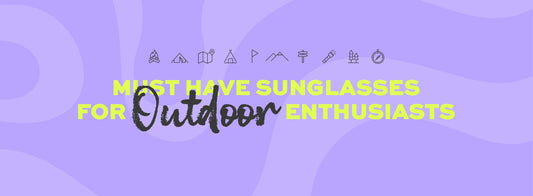We strive to always take care of our community and have been following the news closely in regards to the COVID-19 pandemic and how it may impact Topfoxx and our customers. We have been able to recompile the following tips and advice from the American Academy of Ophthalmology.
Experts from the CDC are saying guarding your eyes — as well as your hands and mouth — can slow the spread of coronavirus.
Limiting eye exposure can help keep you extra protected. Here’s why:
- Though you’re more likely to inhale the virus from another person through your mouth or nose and it is extremely important to wear gloves and masks when outdoors exposed to others, it is also important to cover your eyes as and added way of protecting yourself.
- You can also become infected by touching something that has the virus on it — like a table or doorknob — and then touching your eyes. So by wearing eye wear this may prevent daily habits as such.
Here’s a few tips to help keep you safe. Note the following tips are ways to keep you safer and will not keep you 100% protected, but as we like to say -- Something is better than nothing and want to be sure to keep our BossBabes informed:
1. If you wear contact lenses, switch to glasses for a while.
Contact lens wearers touch their eyes more than the average person. Also, applying contacts requires touching the lenses directly with your fingers and into your eye.
2. Wearing glasses may add a layer of protection.
Corrective lenses or sunglasses can shield your eyes from infected respiratory droplets. Though, the virus can still reach your eyes from the exposed sides, tops and bottoms of your glasses, American Academy of Ophthalmology recommends it's a better option than wearing nothing.
If you are a healthcare professional caring for a sick patient or someone caring for a family member who has been exposed, opt for safety goggles instead as they may offer a stronger defense.
3. Stock up on eye medicine prescriptions if you can.
Experts advise patients to stock up on critical medications, so that you'll have enough to get by if you are quarantined or if supplies become limited during an outbreak. Don't wait until the last minute to contact your pharmacy.
4. Avoid rubbing your eyes.
We all do it. While it can be hard to break this natural habit, doing so will lower your risk of infection. If you feel an urge to itch or rub your eye or even to adjust your glasses, use a tissue instead of your fingers. Dry eyes can lead to more rubbing, so consider adding moisturizing drops to your eye routine.
If you must touch your eyes for any reason — even to administer eye medicine — wash your hands thoroughly first with soap and water for at least 20 seconds. Then wash them again afterwards.
5. Practice safe hygiene and social distancing.
The CDC offers these general guidelines to slow the spread of disease:
- Wash your hands often with soap and water for at least 20 seconds.
- You should especially wash your hands before eating, after using the restroom, sneezing, coughing or blowing your nose.
- If you can’t get to a sink, use a hand sanitizer that has at least 60% alcohol.
- Avoid touching your face — particularly your eyes, nose, and mouth.
- If you cough or sneeze, cover your face with your elbow or a tissue. If you use a tissue, throw it away promptly. Then go wash your hands.
- Avoid close contact with sick people. If you think someone has a respiratory infection, it’s safest to stay 6 feet away.
- Stay home when you are sick.
- Regularly disinfect commonly touched surfaces and items in your house, such as doorknobs and counter tops.




